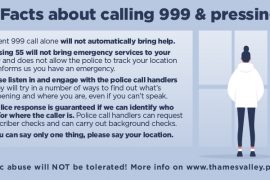Alice Walker once said that “The most common way people give up their power is by thinking they don’t have any”. Even if it appears to us that the amount of power we have is negligible, we still have power.
Our personal power can manifest in the way of support from a friend, researching every piece of information you can (and remember, this is specific to you) to make a situation better, or finding someone to help / support you.
It can be difficult once you’ve fallen into a self-esteem trap to see your own power. But as a community, what we can do is confront the framework that we use to look at ourselves and the way we look at others.
One issue that comes up in almost all of our workshops is personal comparisons. “Why does everything good happen to them?” “I’m not good enough” and “I’m not as good as she/he is, they’re more talented than me” are all standard examples of what we’re talking about.
The problem with personal comparisons is that they stop or hinder us from seeing our personal good (i.e. the things that are good in our lives) and our own achievements. Our frame of reference becomes negative, we unwittingly give up our power and we stop seeing ourselves.
We give up our power by succumbing to such thoughts, “I can’t do that, I’m not that clever / good-looking /fit”, in reality if your best friend turned around and told you that you could never achieve something because you weren’t smart or good-looking enough, then it would hurt. But when we do it to ourselves we accept it without thinking twice.
We’re taught to compare ourselves with others in the early stages of education. Some kids in class turn out to be good at everything, some kids have their speciality subjects, some kids feel like they are the lesser counterparts of their class peers, and some lose interest. A personal comparison cycle begins for every one of those groups, which puts distance between those individuals and their unique abilities.
Don’t do that to yourself, every time you compare yourself to another person you are distancing yourself from your own good. Not to mention that by engaging in comparison we relegate parts of ourselves to the sidelines, and that is not fair.
In reality, all of the children in the above example were (and are) capable of achievement, academic and otherwise. But that when we begin to expect all children to achieve the same things, we erase their abilities and begin a cycle that normalises self-comparison in relation to achievement. This impacts self-esteem negatively, especially in the case of people whose stories are not part of mainstream narratives.
You are, and always have been, capable of achievement.
We have the power to make things better for ourselves and for others. There are some fantastic projects, public speakers, authors and everyday people promoting self-love. We can start by openly discussing the frameworks that we use to look at ourselves and encouraging those closest to us to do the same. By doing this, we can establish new positive frameworks through which to see ourselves.



